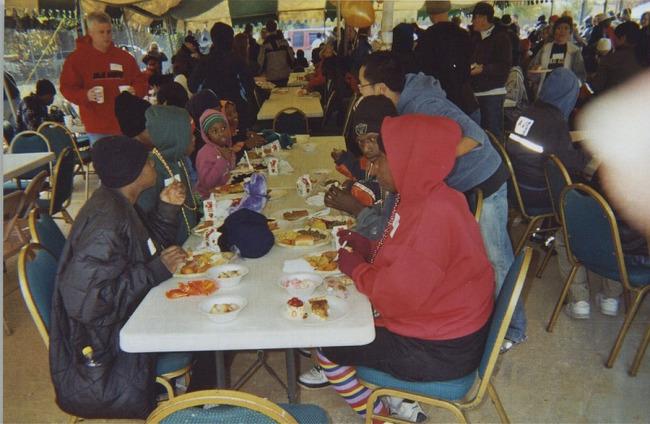
Dallas is often described as a city of wealth and opportunity, a city that numerous Fortune 500 companies call home, and a city where “Big Things Happen.” But the big things happening in Dallas aren’t all good things.
Yes, Dallas has big companies, Dallas has big houses and Dallas has big sports teams. But Dallas also has big poverty.
According to the U.S. Census Bureau, Dallas has the fourth highest poverty rate in the United States, trailing Detroit, Memphis and Philadelphia. Of the close to 1.2 million residents living in the city, about a fourth of them live below the poverty line. The poverty line is $22,350 in yearly earnings for a family of four, $18,530 for a family of three, $14,710 for a family of two, and $10,890 for one person, according to the Department of Health and Human Services.
Rebecca Walls, executive director of Unite Dallas, said people living in poverty typically have a lack of access to quality education for their children, live in single-parent homes and have high levels of stress.
The health of Dallas’s poor is also a concern. People living in poverty are often under toxic stress, which can negatively affect the health of both children and adults. In addition the poor don’t have access to healthy and affordable foods, which leads too much higher rates of obesity, diabetes and other health problems.
“There are a number of neighborhood clinics, but not nearly enough. And those that do exist offer very limited hours and services,” Walls said.
According to Walls, most people living in poverty do not have a primary care relationship with a specific doctor. As a result, many people use 911 as a family doctor. Many of the ambulance calls are actually non-ambulatory.
The Dallas poor has often been ignored, as many believe poverty to be a product of the poor’s personal bad decisions, or a result of laziness. Joe Clifford of First Presbyterian Church Dallas disagrees.
“The most misunderstood aspect of poverty in Dallas is that poor people are lazy,” Clifford said.
According to Walls, many people living below the poverty line are working two or more low wage jobs.
“The issue is broken relationships and being excluded from opportunity. They [the Dallas poor] are around other folks who live life they way they do,” said Shannan McEowen of The Open Table. “They don’t have real life examples that challenge them to live into their potential. All they know is what and who they know. If they were given the opportunity, I believe they would choose differently.”
There are two broad types of poverty. Situational poverty is caused by events like job loss, health crisis, divorce or incarceration, events that are sometimes within a person’s control, but not always. Generational poverty is when someone’s family has been poor for generations. The odds are stacked against a person from the beginning.
“Can someone pull himself out of generational poverty without major intervention? Yes, but it first requires a vision for a different future combined with incredible determination,” Walls said.
People living below the poverty line aren’t the only ones struggling in Dallas. According the U.S. Census Bureau 39 percent of Dallas residents are considered asset poor.
“Asset poverty means you don’t have enough liquid assets, savings & investments, to keep you out of poverty if you were to lose your job or have another crisis,” Walls said.
Clifford adds, “The reality for the working poor in Dallas is that they are trapped, and short of winning the lottery, which might mean a potential job promotion, they are stuck.”
Dallas Mayor Mike Rawlings is aware of the problem and according to Walls he has put out an “all-hands-on-deck call” to reduce poverty in Dallas.
The Mayor’s efforts include “Grow South,” an economic development plan for southern Dallas, working with Dallas ISD to improve education, and the recent implementation of a Task Force headed by the president of City Square, Larry James, to look at additional actions the city could take.
Rawlings said the cities high poverty rate is something both rich and poor people should care about. He fears if the poverty rate continues to rise, it could discourage employers from coming to the city.
While city officials are making efforts to curb poverty, Dallas residents also have to step up. According to Walls, educating the Dallas public on what poverty really means is the first step.
“Misconceptions are stopping a lot of middle and upper class neighbors from making a difference,” Walls said.
She suggest the website understandingpoverty.com as a resource that can help clear up these misconceptions.
“There isn’t some big formula that will solve poverty but if every person not inpoverty reached out to, and befriended a person in poverty and really got to know them and understand their day to day struggle, things would change,” McEowen said.








